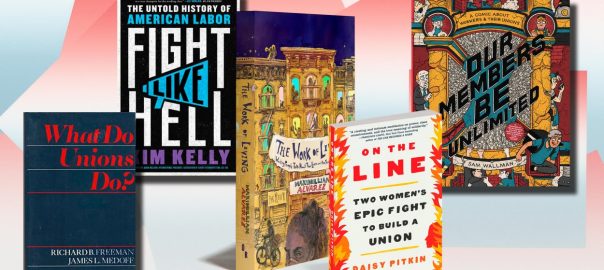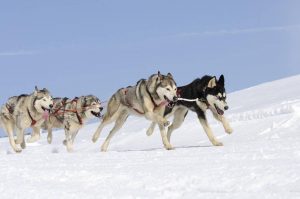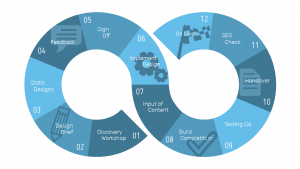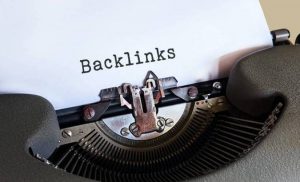There’s no doubt that 2022 was a prominent year for the labor movement. Workers saw historic wins, from the first Amazon warehouse unionizing to the largest academic strike in higher education, when 48,000 workers at the University of California walked off the job. And the public backs unions in record numbers: 71% of Americans approve of labor unions, the highest level of support since 1965.
That fact reveals that, though the labor movement may be having a moment, it’s by no means new. If you’ve just started paying attention to it, or if you’ve seen the actions of these past few years and want to learn more about how the labor movement has taken shape, here are a few book recommendations from labor reporters, union members, and academics.
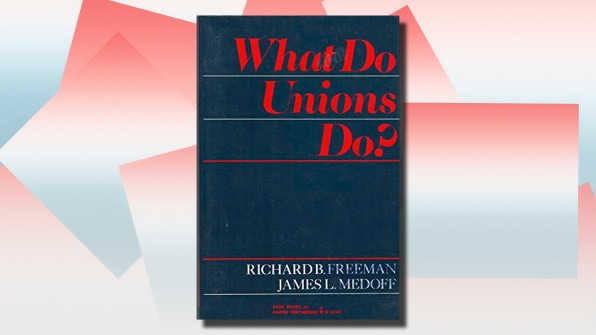
What Do Unions Do? by Richard Freeman and James L. Medoff
“The classic book explaining what unions do is, perhaps unsurprisingly, What Do Unions Do?,” says Seth Harris, a professor at Northeastern University who was also a top labor advisor to President Joe Biden and an acting labor secretary under President Barack Obama. “It has been updated in academic symposia over the years and in individual articles, but it nicely captures the central arguments in an accessible way.”

Fight Like Hell: The Untold History of American Labor by Kim Kelly
Tove Holmberg, a unionized worker at Powell’s Books (ILWU Local 5) in Portland, Oregon, recommended this book by labor journalist (and Fast Company contributor) Kim Kelly. “It’s like a mixtape of American labor stories from the cool kid who knows all the best B-sides: In this case, the working-class heroes whose names and narratives have been largely written out of U.S. labor history, but whose bravery and sacrifice shaped it,” Holmberg says. “If all you know is the hits, the deep cuts in Fight Like Hell will give you new inspiration for the fight.”
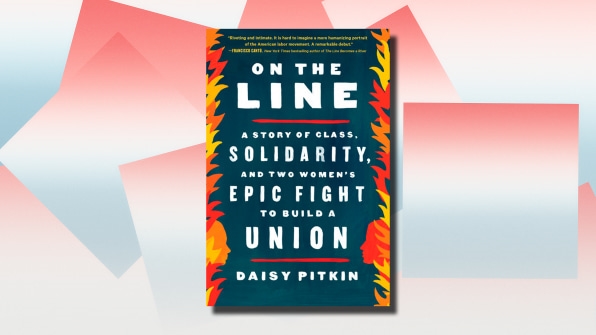
On the Line: A Story of Class, Solidarity, and Two Women’s Epic Fight to Build a Union by Daisy Pitkin
Kelly herself recommended this book as her favorite labor read of 2022. “Pitkin writes like a poet and thinks like an organizer because that’s exactly who she is,” Kelly says. “Her book is a beautiful memoir of shared struggles, hard work, and blurred lines, one that centers the experience of the immigrant workers she’s fighting alongside and beckons the reader in to share the ecstatic highs and crushing lows of a union-organizing campaign.”
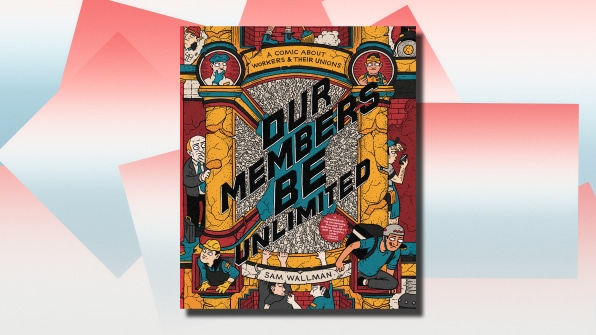
Our Members Be Unlimited by Sam Wallman
If a text-heavy book isn’t your thing, what about a comic instead? “In Our Members Be Unlimited, Australian comics journalist, cartoonist, and labor activist Sam Wallman takes readers on a journey through the history of the working class, pausing along the way to recount his own experience working as a picker and shop-floor organizer in an Amazon warehouse, and inviting readers to consider labor’s future and their role in it,” says Holmberg. “I’ve been describing this as ‘an intro-slash-invitation to unionism,’ and it really excels on both fronts.”
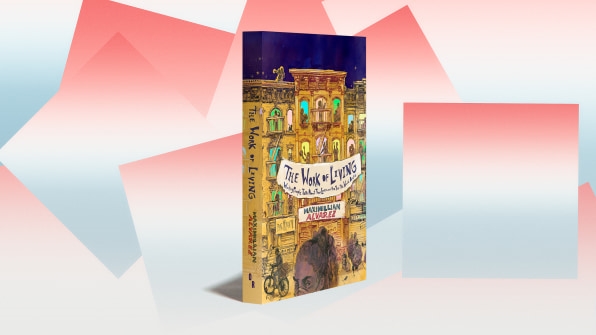
The Work of Living: Working People Talk About Their Lives and the Year the World Broke by Maximillian Alvarez
This recommendation comes from Hamilton Nolan, a labor reporter (who is currently writing a book about the labor movement, to be released in 2024). He describes it as a “good entry point into ways to look at the labor movement.” By the editor-in-chief of The Real News Network in Baltimore and host of the Working People podcast, The Work of Living tells the stories of workers’ lives during the COVID-19 pandemic, through interviews conducted in 2020 and 2021 with all kinds of laborers—from sheet metal workers to burlesque performers to gravediggers. Workers kept the world turning during COVID-19, in some cases explicitly deemed essential, but they were also furloughed, laid off, faced pay cuts, and, of course, got sick and some even died, due to being on the front lines of the pandemic. COVID-19 also widened inequality—all experiences that ultimately helped fuel the resurgence in worker organizing.

(25)
Report Post